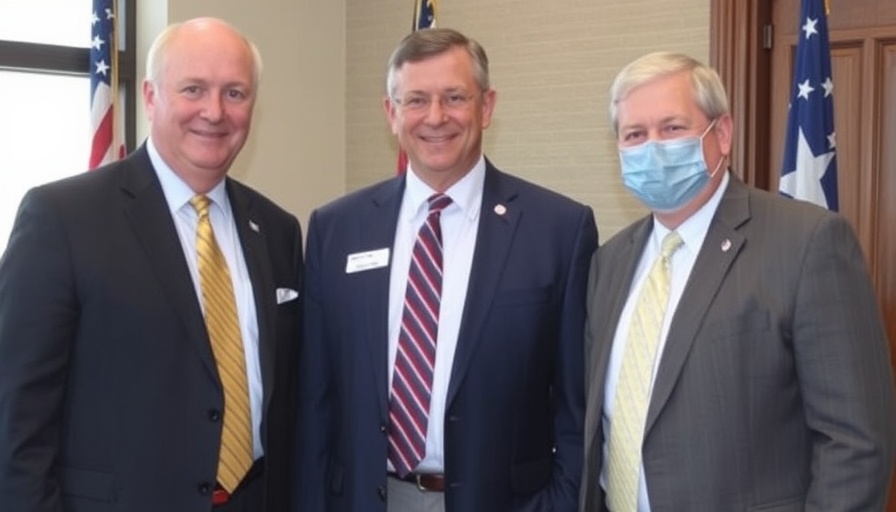
Mayors Demand Delay for Crucial Redistricting Vote
In an unusual move that highlights the importance of accurate demographic representation, mayors from ten cities in Tarrant County have united to urge the commissioners court to delay a vital vote on redistricting. This call for postponement comes ahead of the upcoming 2026 primary and midterm elections and is fueled by concerns over compliance with law and the use of outdated census data.
Understanding the Context of Redistricting
Typically, redistricting occurs after each census, allowing for adjustments based on population changes. However, in 2020, the Tarrant County commissioners chose not to redraw district lines citing demographic balance. The mayors argue that the commission's current proposals, based on 2020 census data, do not reflect five years of growth in the county.
Who Are the Mayors Behind the Call?
The mayors of Fort Worth, Arlington, Hurst, Forest Hill, Everman, Edgecliff Village, Grand Prairie, Haltom City, Pantego, and Mansfield signed a joint letter addressed to County Judge Tim O'Hare and the commissioners. Each one emphasized the necessity of waiting for more recent census data to ensure that any changes would be legally defensible and representative of the community's current demographic make-up.
Legal Concerns Among Proposed Maps
Mayor Mattie Parker articulated concerns that the proposed maps, crafted by an *out-of-state law firm*, might not withstand legal scrutiny. The maps were developed quickly and raised questions regarding their preparation and the accuracy of the representation. The potential for legal challenges looms large, casting doubt on the efficacy of redistricting efforts if they proceed without updated data.
The Road Ahead for Tarrant County
The current timeline for the vote is set for June 3. As the mayors work to adjust this schedule, public feedback will play a crucial role. Citizens are encouraged to visit the Tarrant County Redistricting 2025 website to review the proposed maps, submit their own, and provide comments. This participatory approach allows residents to have a say in their representation, fostering a stronger connection between the community and its elected officials.
Why This Matters to Homeowners in DFW
For homeowners in Dallas Fort Worth, the implications of redistricting extend far beyond election cycles. It affects local policy-making, funding for community resources, and representation in various governmental activities. Ensuring accurate and reflective district maps will help city leaders address the needs of their constituents more effectively.
This delay represents a significant opportunity for transparent governance and community involvement. Participating in the redistricting process can empower homeowners to understand how demographic changes impact local policies and services.
As this situation unfolds, staying informed and involved will ensure that the voices of DFW residents continue to shape the future of their communities. Now is the time to engage with local discussions and advocate for fair representation.
 Add Row
Add Row  Add
Add 




 Add Row
Add Row  Add
Add 

Write A Comment